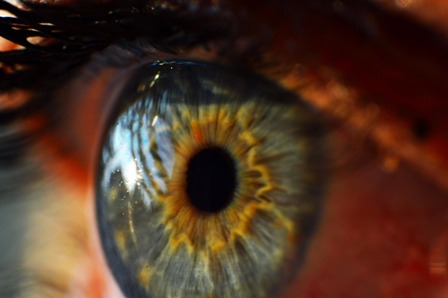
Researchers in Southampton are in the early stages of a pioneering study to investigating if albinism could protect against a leading cause of sight loss.
Mr Jay Self, a consultant ophthalmologist at the University Hospital Southampton NHS Foundation Trust, and his team are looking at the link between sight loss and albinism, with the aim to recruit anyone over the age of 65 with albinism to find out more.
Losing vision
Age-related macular degeneration (AMD) affects a quarter of people over 65, and half of people over 85 and is the UK’s biggest cause of gradual sight loss.
Albinism is caused by faulty genes that a child inherits from their parents, affecting the production of melanin, the pigment that colours skin, hair and eyes. People with the condition can have pale skin that burns easily in the sun, white hair, poor vision, sensitivity to light and involuntary eye movements.
Despite the high rates of AMD, clinicians have very rarely, if ever, seen a patient with both conditions.
Understanding the link
“It has been an odd observation for many years that no-one can ever remember seeing a case of AMD in someone with albinism – therefore, something is going on,” Mr Self said.
“So far, using various online resources and enquiries, we have amassed a grand total of seven people in the UK over 65 who report having albinism at all and none who have been given both diagnoses.”
Mr Self, who is also an associate professor of ophthalmology at the University of Southampton, said research has shown that the retina loses function in older animals with albinism but this is not clear in humans.
“We have researched this topic extensively from the records available and have this interesting phenomenon which we need to know more about and investigate further.
“It has even been suggested that the albinism itself may ‘protect’ against AMD which would be a very important finding to aid further study into both conditions.”
Getting involved
If you are interested in joining the study, please contact Mr Self on email at j.e.self@soton.ac.uk to find out more.
This project is part of a programme of work at UHS, led by Mr Self and Dr Helena Lee, looking for potential ways to treat albinism and nystagmus, a condition which causes the eyes to 'wobble' and creates strobe vision.
Posted on Wednesday 5 September 2018